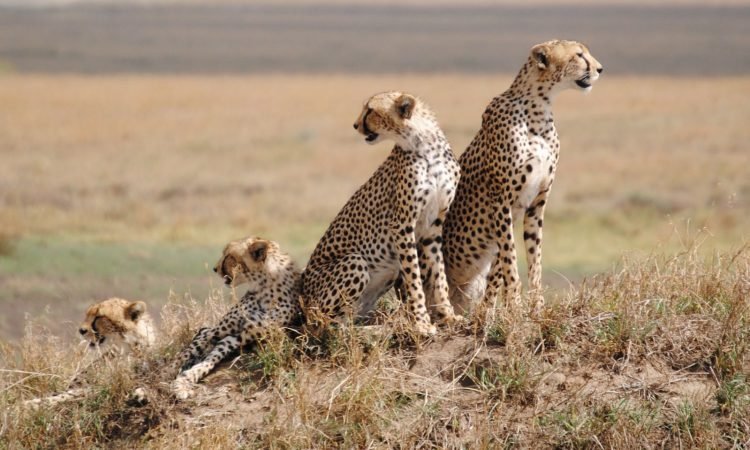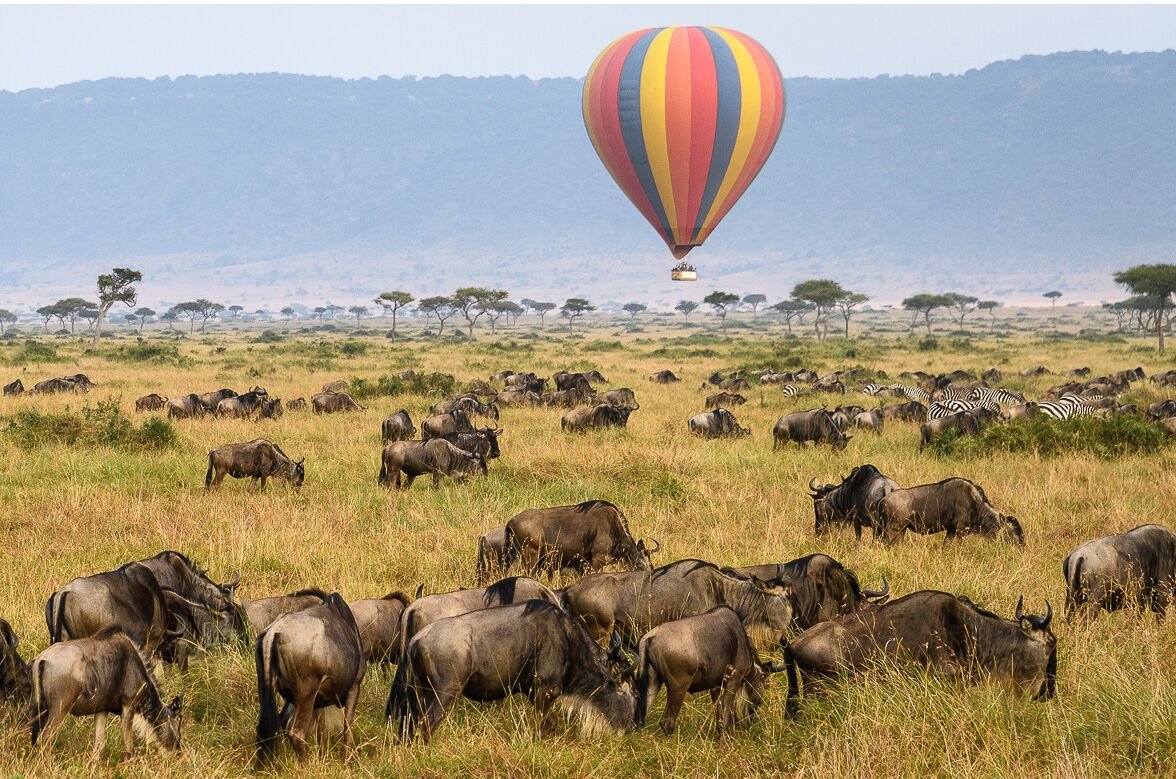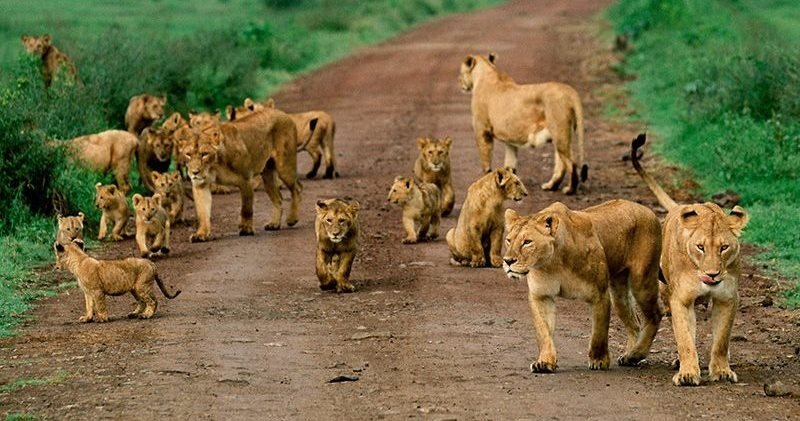Tanzania, in East Africa, is a land of spectacular landscapes, abundant wildlife, and rich culture. For adventurers and nature enthusiasts, it offers an experience like no other. African Safari Tanzania: Whether you’re a first-time traveler or a seasoned safari-goer, Tanzania promises unforgettable moments. From the iconic Serengeti and Ngorongoro Crater to Mount Kilimanjaro and the idyllic Zanzibar islands, Tanzania is a country that stirs the soul.
In this guide, we’ll explore why Tanzania should be at the top of your adventure list, highlighting the wildlife, ecosystems, cultural experiences, and thrilling activities that make it one of Africa’s premier safari destinations.
1. Wildlife Paradise: The Big Five and Beyond
The Big Five and Much More
Tanzania is home to the famous “Big Five” – lions, elephants, leopards, buffaloes, and rhinos – but it doesn’t stop there. With over 4 million wild animals roaming its national parks, Tanzania offers a wildlife experience like no other. From giraffes and zebras to hippos and cheetahs, the variety of animals is staggering.
Serengeti National Park: The Great Migration
Serengeti National Park is a world-renowned safari destination, particularly famous for the annual Great Migration. This massive movement of over 1.5 million wildebeest, 200,000 zebras, and other herbivores, followed closely by predators, is one of nature’s greatest spectacles. Watching these animals journey across the plains in search of fresh grazing land is a must-see for any adventurer.
Ngorongoro Crater: A Wildlife Wonderland
Another must-visit is the Ngorongoro Crater, the world’s largest unbroken volcanic caldera. Often called “Africa’s Garden of Eden,” this stunning area is home to around 25,000 animals, including rare black rhinos. Because the crater is enclosed, wildlife is concentrated, making it one of the best places for game drives and wildlife spotting.
2. Jaw-Dropping Landscapes
Mount Kilimanjaro: Africa’s Highest Peak
At 5,895 meters (19,341 feet), Mount Kilimanjaro is Africa’s highest mountain and a beacon for trekkers from around the world. What’s remarkable is that it’s accessible to non-climbers, making it a bucket-list adventure for many. Whether you aim to summit or explore the lower slopes, Kilimanjaro is a stunning natural wonder.
Rift Valley and the Lakes
Tanzania’s Rift Valley features breathtaking scenery, with a string of lakes that attract wildlife. Lake Manyara is known for its pink flamingos and tree-climbing lions, while Lake Victoria, the largest lake in Africa, offers rich birdlife and water activities.
Zanzibar: A Beach Paradise
After days of safari, Zanzibar’s white-sand beaches and crystal-clear waters are the perfect place to relax. Zanzibar is not just a beach destination – it’s steeped in history and culture. You can explore Stone Town, a UNESCO World Heritage Site, or enjoy snorkeling, diving, and water sports in the surrounding reefs.
3. Safari Options for Every Type of Traveler
Game Drives and Walking Safaris
Tanzania caters to all types of safari-goers. Game drives in 4×4 vehicles are the classic way to explore its vast national parks. But for those seeking a more intimate experience, walking safaris offer a chance to explore the bush on foot, learning about the landscape, tracking wildlife, and feeling the heartbeat of the wilderness.
Hot Air Balloon Safaris: A Unique Perspective
For a safari experience like no other, take a hot air balloon ride over the Serengeti. Floating silently over the savannah at dawn, you can watch the animals below and take in the sweeping landscape. It’s a breathtaking way to see Tanzania from above.
Night Safaris and Luxury Lodges
Night safaris provide a chance to spot nocturnal animals like leopards, hyenas, and owls, revealing a different side of Tanzania’s wildlife. For those who want to combine adventure with comfort, Tanzania boasts an array of luxury lodges and camps that offer all-inclusive packages with private game drives, gourmet meals, and stunning accommodations.
4. Cultural Experiences: Meet Tanzania’s Indigenous Tribes
The Maasai: Guardians of Tradition
The Maasai people are among the most famous tribes in Tanzania, known for their vibrant red clothing, beadwork, and semi-nomadic lifestyle. Visiting a Maasai village offers a glimpse into their traditions, such as cattle herding, dancing, and communal living.
The Hadza Tribe: A Glimpse into Ancient Life
For a deeper cultural immersion, the Hadza people, one of Africa’s last hunter-gatherer tribes, provide a rare opportunity to step back in time. The Hadza live near Lake Eyasi, and you can learn about their traditional hunting techniques, gather wild foods, and understand their unique way of life, which has remained unchanged for thousands of years.
5. Tanzania’s Commitment to Conservation
National Parks and Conservation Efforts
Nearly 40% of Tanzania’s land is protected through its national parks, game reserves, and conservation areas. This dedication to preserving its natural environment is key to the country’s tourism and conservation success. From the vast Serengeti to the remote Selous Game Reserve, Tanzania is leading the way in wildlife preservation.
Anti-Poaching Initiatives
Tanzania is also making great strides in combating poaching, particularly with the protection of endangered species like elephants and rhinos. By visiting Tanzania, you’re supporting these important conservation efforts and contributing to the protection of its wildlife for future generations.
6. Thrilling Activities Beyond the Safari
Diving and Snorkeling in Zanzibar
Tanzania’s coastline offers some of the best diving and snorkeling spots in Africa. Zanzibar’s coral reefs are rich in marine life, and you can swim with dolphins, sea turtles, and a dazzling array of tropical fish. Whether you’re a beginner or an experienced diver, the waters around Zanzibar are a diver’s paradise.
Climbing Ol Doinyo Lengai
For a more unique adventure, consider climbing Ol Doinyo Lengai, an active volcano in northern Tanzania. Known as the “Mountain of God” to the Maasai, it offers a challenging but rewarding trek, with incredible views of the Great Rift Valley and Lake Natron.
7. When and How to Plan Your Safari
Best Time to Visit
Tanzania’s dry season, from June to October, is the prime time for wildlife viewing. This period is also when the Great Migration is most visible in the Serengeti. For bird watchers, the wet season from November to May is when migratory birds arrive, filling Tanzania’s skies with vibrant colors.
Getting There
Tanzania is well-connected, with Kilimanjaro International Airport serving as the main entry point for safari-goers. From there, domestic flights between parks are available, ensuring you maximize your time exploring the country’s diverse landscapes.
Conclusion: Your Next Great Adventure Awaits
An African safari in Tanzania is an experience like no other. From the thrill of witnessing the Great Migration to standing atop Kilimanjaro, Tanzania offers something for every adventurer. Its stunning wildlife, diverse landscapes, rich culture, and commitment to conservation make it one of the top safari destinations in the world.
If you’re planning your next big adventure, make Tanzania your destination. Whether you’re exploring the Serengeti or relaxing on Zanzibar’s beaches, this East African gem promises memories that will last a lifetime.
For your ultimate safari experience, explore Tanzania with Providence Safari and create the adventure of a lifetime.mises to be an experience like no other—a true African safari that will leave you with memories to last a lifetime.



